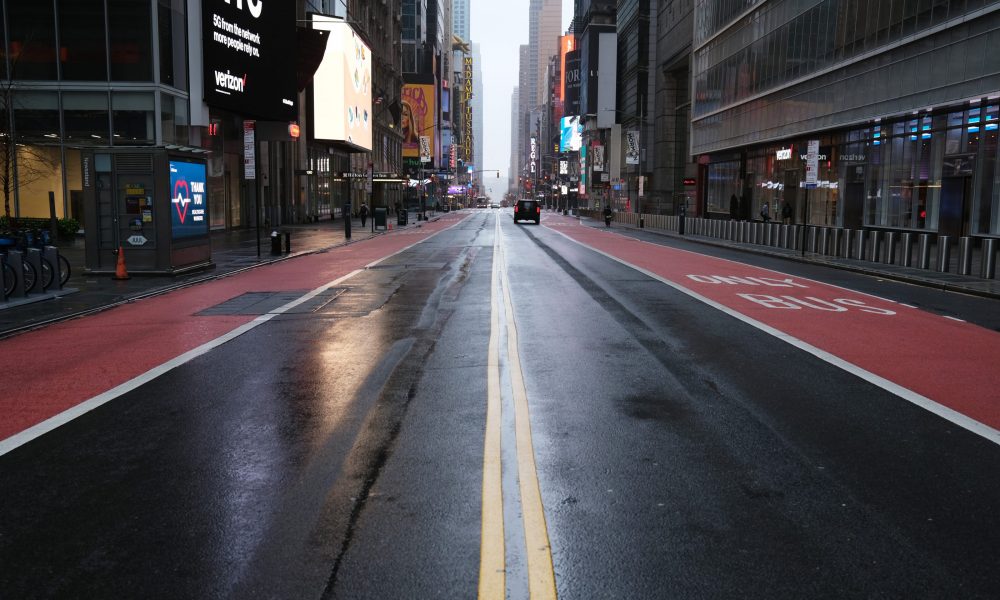Workplace discrimination
Suzanne P. Clark, Opinion contributor
Published 3:15 a.m. ET April 16, 2020 | Updated 12:19 p.m. ET April 16, 2020
CLOSE![]()
The coronavirus (COVID-19) is impacting the global economy and raising fears of a recession. What causes a recession and what are the signs?
USA TODAY
Workplace discrimination A safe return to work will be complicated. If we don’t get this right, the health and economic costs of the coronavirus could be even more daunting.
Everyone wants to know when our nation’s economy will reopen and what a return to work will look like.
Most health experts expect that returning to work will occur in phases and vary by factors such as location, sector, business type or size and the health status of workers. To that end, business leaders, policymakers and public health experts must work together to anticipate, plan for and address the following priorities:
►Ensure that we have the essential services and resources required to return to work.
For many Americans, resuming work will be an option only if essential services are operating. For example, working parents will need access to child care. But child care facilities will have to implement social distancing. A gradual return to work means both less revenue and higher operational costs. Under this strain, working parents could find themselves with fewer child care options than they had pre-crisis. Protecting public health during the return to work may require temporary new federal and state targeted financial assistance for child care providers.
Or consider public transportation, which 7.6 million American workers use. For the foreseeable future, buses and subways packed full of commuters during rush hour will be out of the question. We will need to coordinate staggered work times and subsidize increased transit capacity so that commuters can spread out.
►For employees to actually enter the workplace, public health officials may determine that proof of immunity or a negative COVID-19 test is necessary.
Employers are ill equipped to administer such tests, and employees will rightly be concerned about costs. The government will need to ensure that the tests are widely available at no cost to individuals. The Trump administration just mandated that health insurers must cover all costs for antibody testing. What about the uninsured? The government must clarify COVID-19 testing policy for all, and the sooner the better.
How we move forward: End the coronavirus outbreak with aggressive screening to find and isolate infected people
If regular temperature checks and personal protective equipment (PPE) are needed — as the Centers for Disease Control and Prevention recently recommended for some essential workers — we will need a significant increase in supply. That supply has to be in place before a successful reopening.
►Eliminate regulatory roadblocks and liability concerns.
Businesses screening employees and potentially customers based on the results of medical tests, health status or even temperature checks raise a myriad questions around medical privacy and anti-discrimination rules under numerous federal, state and local statutes.
CLOSE![]()
Dr. Anthony Fauci says the novel coronavirus is going to “determine when we really can safely reopen” the US. In an Associated Press interview, Fauci cautioned that he would not be surprised if a second wave from the virus occurred. (April 14)
AP Domestic
Similarly, employers often have certain obligations to train employees in the use of personal protective equipment, but what if we are asking every employer to utilize PPE? Temporarily suspending the normal regulatory requirements, such as those from the Occupational Safety and Health Administration, for training and providing a legal safe harbor for employers as they implement complex public health requirements is common sense.
HOTLINE: Share your coronavirus story
Unfortunately, despite the already unprecedented number of business owners on the brink of bankruptcy, the coronavirus has the potential to be one of the most liability-generating events in history, and opportunistic lawyers are already exploiting the crisis by going after health care providers and challenging hospital policies that protect patients and employees. Imagine if they turn their sights on employers newly tasked with screening employees and maintaining a virus-free workplace.
Broad liability protections at the national level will be necessary for business owners to mitigate the already complicated and risk-ridden process of resuming normal operations. Congress enacted similar protections in the bipartisan Y2K Act ahead of anticipated computer problems with the year 2000. This can serve as a starting point for today’s discussions.
►Continue support for vulnerable workers and businesses.
Not every person or business will be included in the early waves of reopening. Ongoing social distancing will put businesses that rely on high occupancy, like restaurants and entertainment venues, at continued risk of permanent closure. Individuals in the high-risk categories — not just older people but also those with conditions like Type 2 diabetes and hypertension — might not be able to work until a vaccine is available.
The federal government must commit to providing adequate aid to get these employers and employees through to the other side. Targeted extensions of the Paycheck Protection Program and expanded unemployment insurance benefits enacted as part of the CARES Act are a good place to start.
Lessons from the past: 17 years ago, Toronto was a SARS pandemic epicenter. Here’s what we learned.
If we don’t get this right, the public health and economic costs could become even more daunting. We’ve seen examples from around the world of countries reopening without taking the necessary precautions, and businesses have been forced to shut back down.
How our nation’s public and private sectors manage this temporary period of seminormal will have a significant bearing on how quickly we establish a new normal. That new normal can and should be marked by an economy poised for a comeback, families overcoming financial hardship and a renewed sense of public safety and confidence. Working together, we will get there.
Suzanne P. Clark is president of the U.S. Chamber of Commerce. Follow her on Twitter: @SuzanneUSCC
Autoplay
Show Thumbnails
Show Captions
Autoplay
Show Thumbnails
Show Captions
Read or Share this story: https://www.usatoday.com/story/opinion/2020/04/16/president-us-chamber-commerce-how-reopen-economy-column/2992536001/

